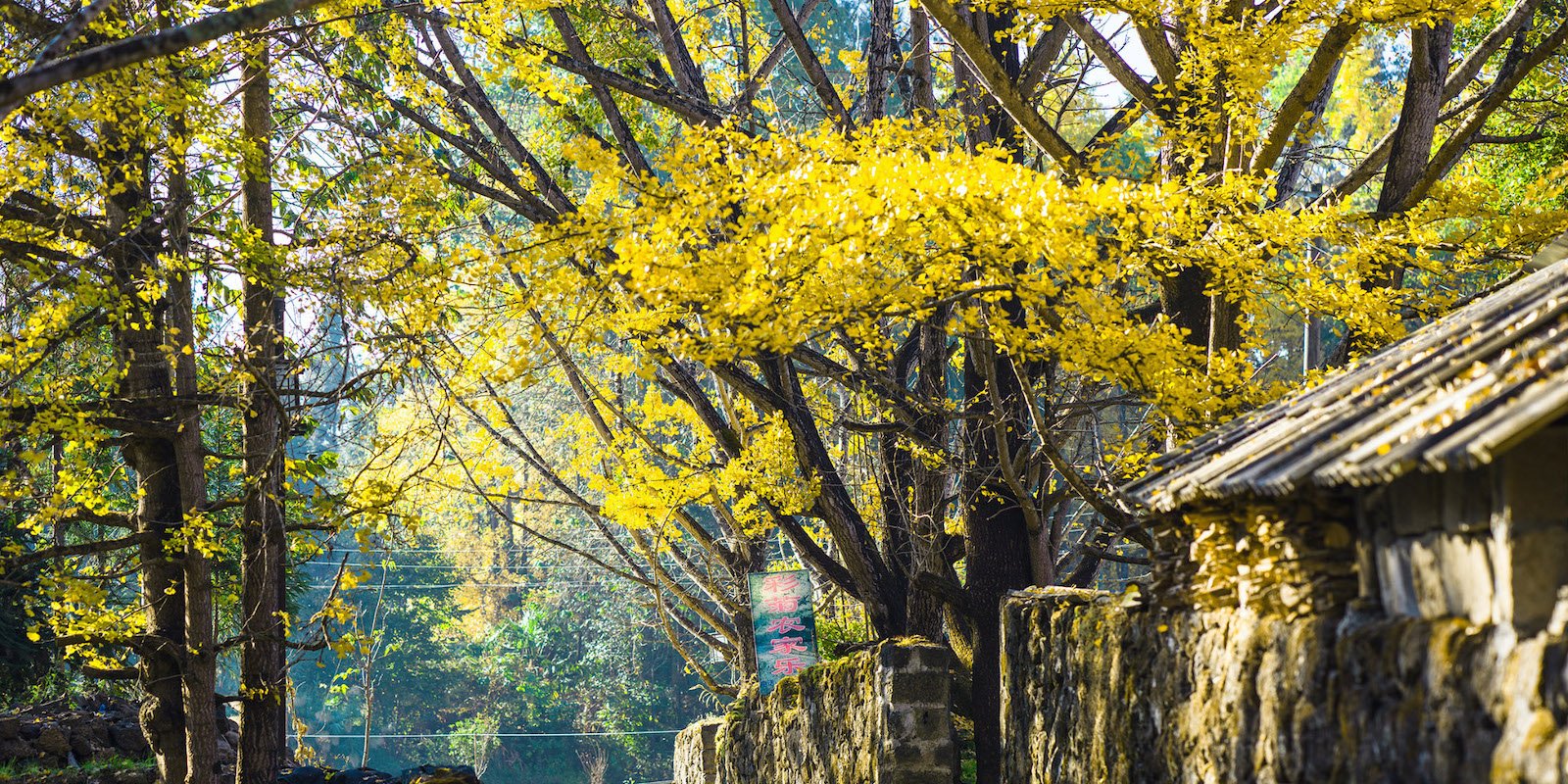
Compared with Dali, Lijiang, and Shangri-La, Tengchong is not a famous travel destination, especially for foreign travelers; it is well known among the local travelers for the well-preserved Heshun Ancient Village, hot springs, and the local tea.
Tengchong is a perfect getaway city, especially for luxury travelers, some of the hotels such as Banyan Tree, The Lost Stone, Bolian Resort & Spa, as well as the Vinetree Gaoligong Tented Resort are the top resorts in China.
tengchong tourist attractions
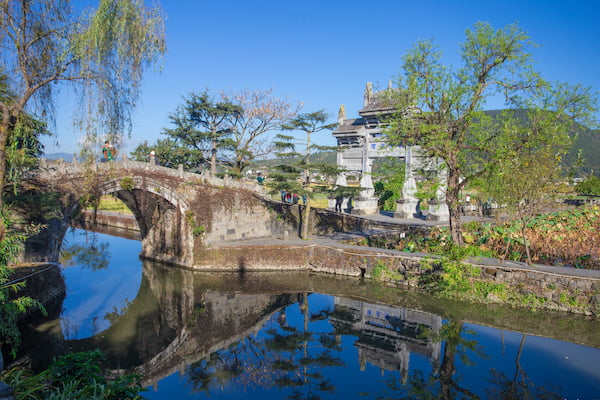
Heshun Ancient Town
Located four kilometers to the southwest of Tengchong city, the more than 600-year-old town is well known for its quadrangle courtyards built on the hillside. It features impressive architecture that was built with wealth from multi-generational trading families who sent children to Burma. Many historical residences can be found in Heshun, among all of them, the most famous one is the former residence of Ai Siqi, the early communist philosopher, where he lived for two years. It contains pictures, personal items, and a statue of him in the yard of the compound.
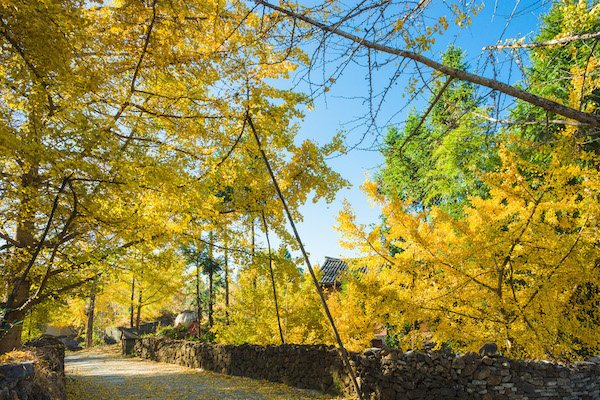
Ginkgo Village
Ginkgo Village is a primitive village called Jiangdong in Tengchong County, Yunnan Province. There are more than 3,000 ginkgo trees dotted inside and outside the village, Most of which are over a hundred years old. This may be the largest, most concentrated, and oldest ginkgo forest in Yunnan.In late autumn, all the ginkgo leaves turn into yellow color, attracting many photographers and local tourists.
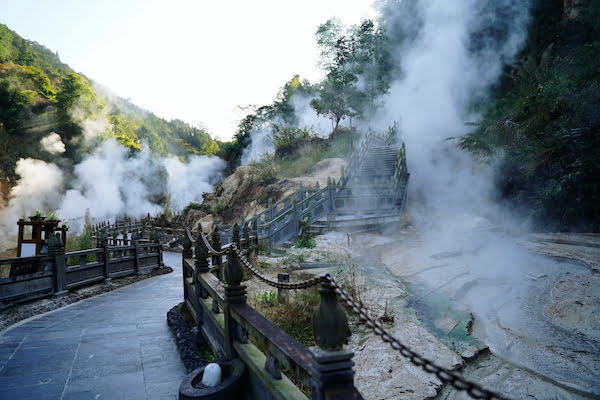
Hot Sea (Rehai)
Rehai, or the “Hot Sea” scenic area, is constantly enveloped by the steam produced from its numerous hot springs. The most famous hot spring is known as the “Boiling Pot”, boasting temperatures as high as 97 degrees Celsius. As the heat is too much for the human body, the “Boiling Pot” has been adapted so that it can boil food such as eggs and peanuts, which are then served as snacks for the visitors
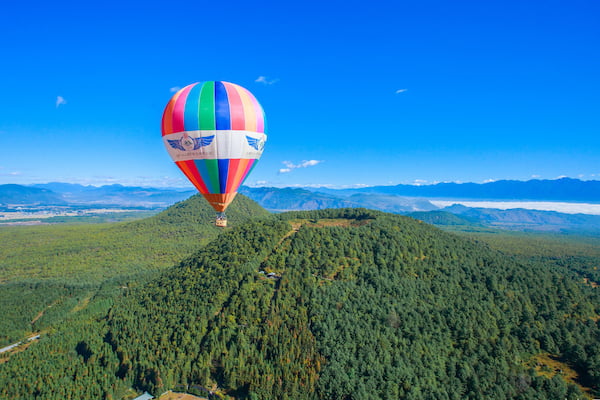
Volcanic Geothermal Geopark
The Volcanic Geothermal National Geological Park is a national park in China that features the Tengchong volcanic field and several of its other features. The park’s main entrance is situated at the base of the three largest extinct volcanic cones (all of which are in close proximity to each other). The volcanoes are covered in vegetation and visitors can take hiking trails up to their summits. There is also a geologic museum situated near the main entrance.
The most amazing way to see the park is taking a ride on a hot-air balloon, and admiring the picturesque views of the volcanoes from above.
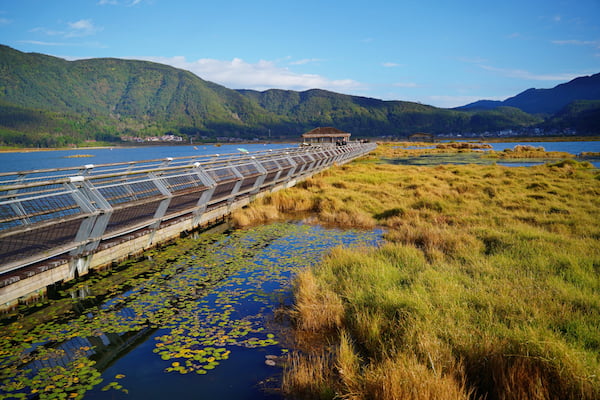
Beihai Wetland
The wetland is composed of constantly interwove grassroots and root hairs of various plants, which have been growing continuously for about 600,000 years. The average thickness of such floating grassland is about 1-2 meters, with the thickest part reaching two meters. It can move with the wind and has a strong carrying capacity, and a cut piece of it can be used as a boat.
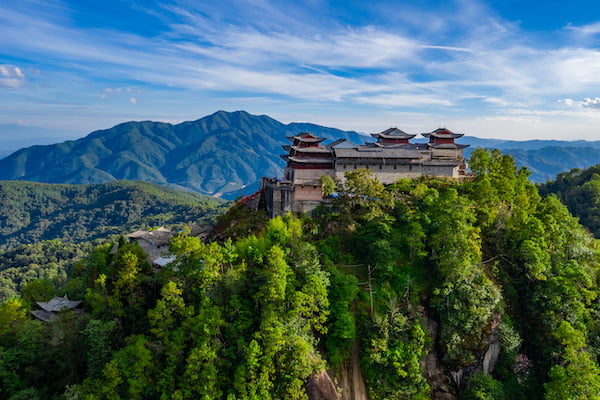
unfeng Mountain
Yunfeng Mountain is located about 50 km to the northwest of Tengchong. With the shape of bamboo shoot, Yunfeng Mountain is the typical landscape in south Yunnan. People call it Yunfeng Mountain because the waist of it is always covered by the cloud. The great traveler Xu Xiake in Ming Dynasty praised it as “the ridge of the Chinese dragon.”
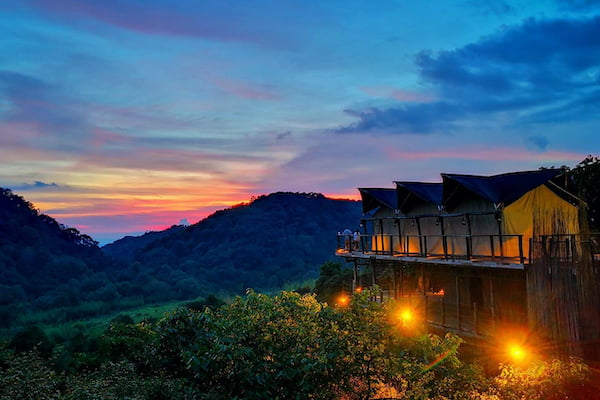
Gaoligong Mountain
The Gaoligong Mountains are a mountainous sub-range of the southern Hengduan Mountain Range, located in the western Yunnan highlands and straddling the border of southwestern China and northern Myanmar (Burma).
In 1983, the Gaoligong Mountain National Nature Reserve was established. In 1992, the World Wildlife Fund designated it a level A grade protected area. In 2000, UNESCO accepted it as a Biosphere Reserve member.
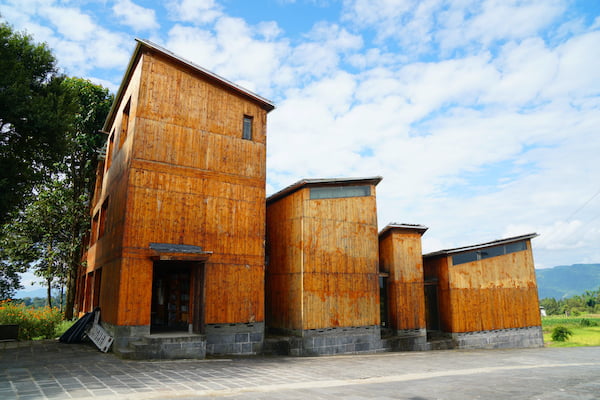
Museum of Handcraft Paper
The Museum of Handcraft Paper is located in a field next to Xinzhuang village under Gaoligong Mountain of Yunnan, a world ecological preserve area in the southwest of China. The village has a long tradition of handcraft paper making. The museum project is a part of the plan to preserve and develop the traditional resources, in which papermaking will be preserved as cultural heritage and contribute to community growth. The museum consists of exhibition space, bookstore, workspace, and guest rooms for artists and visitors to learn about the history, technique, and papermaking product.

